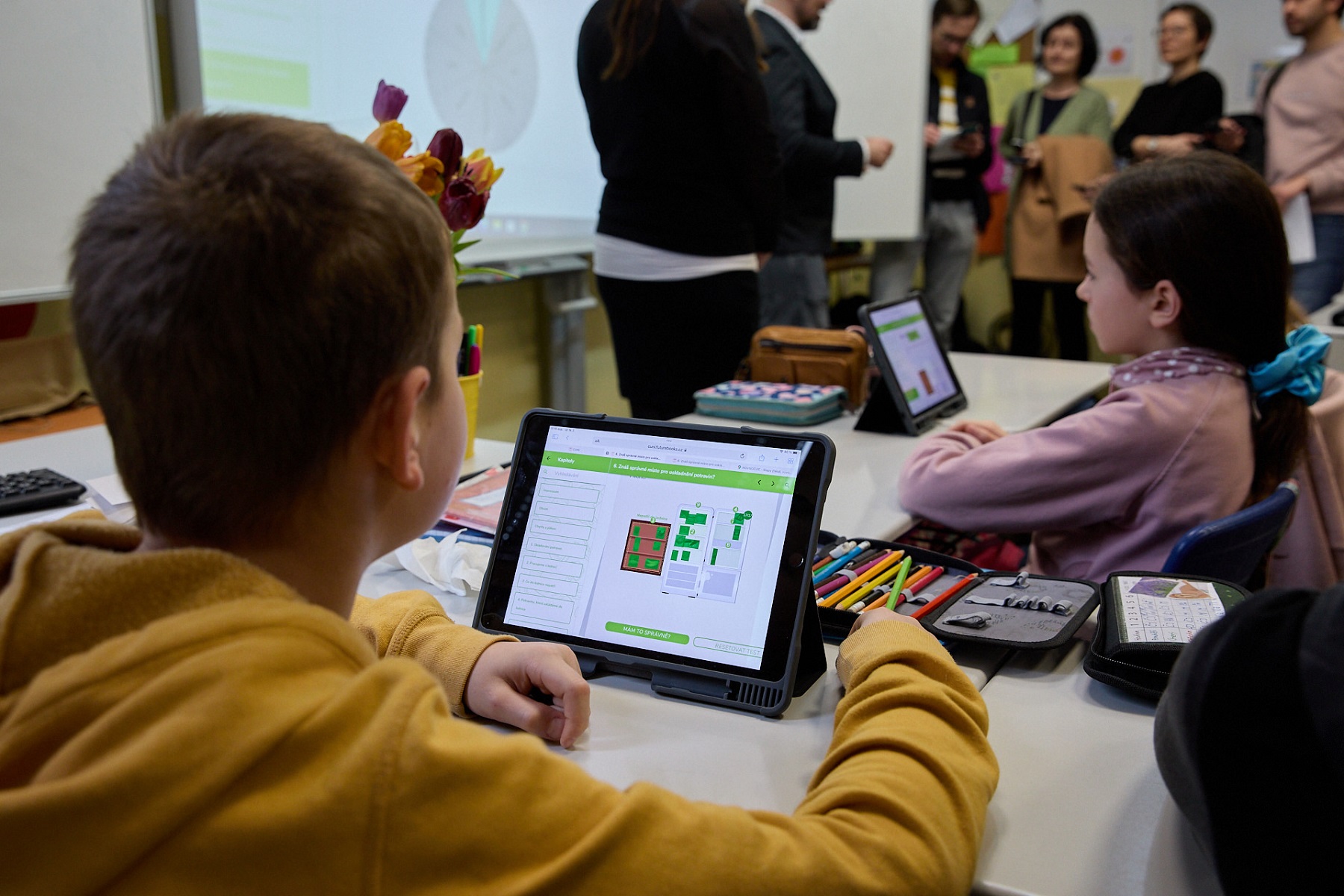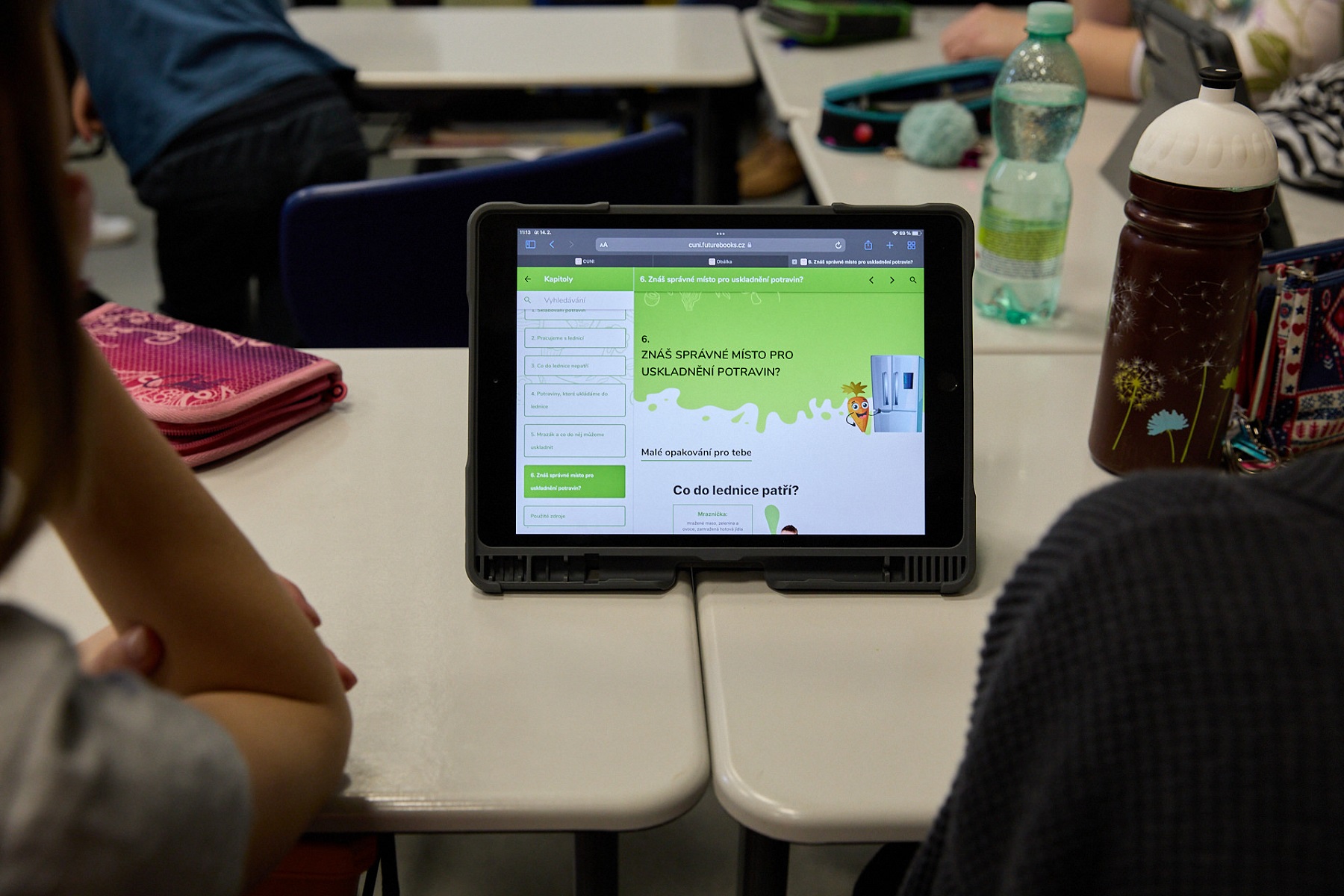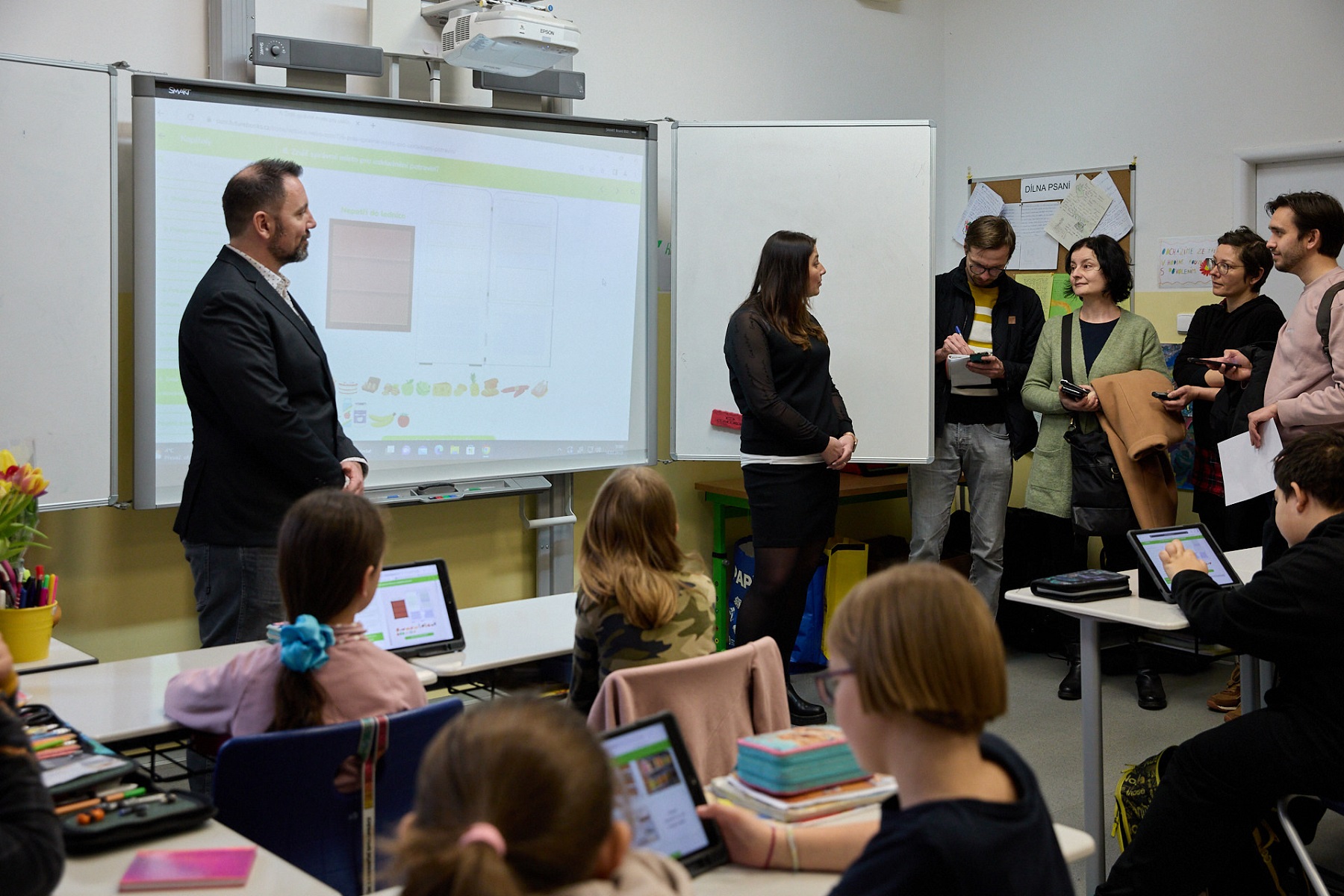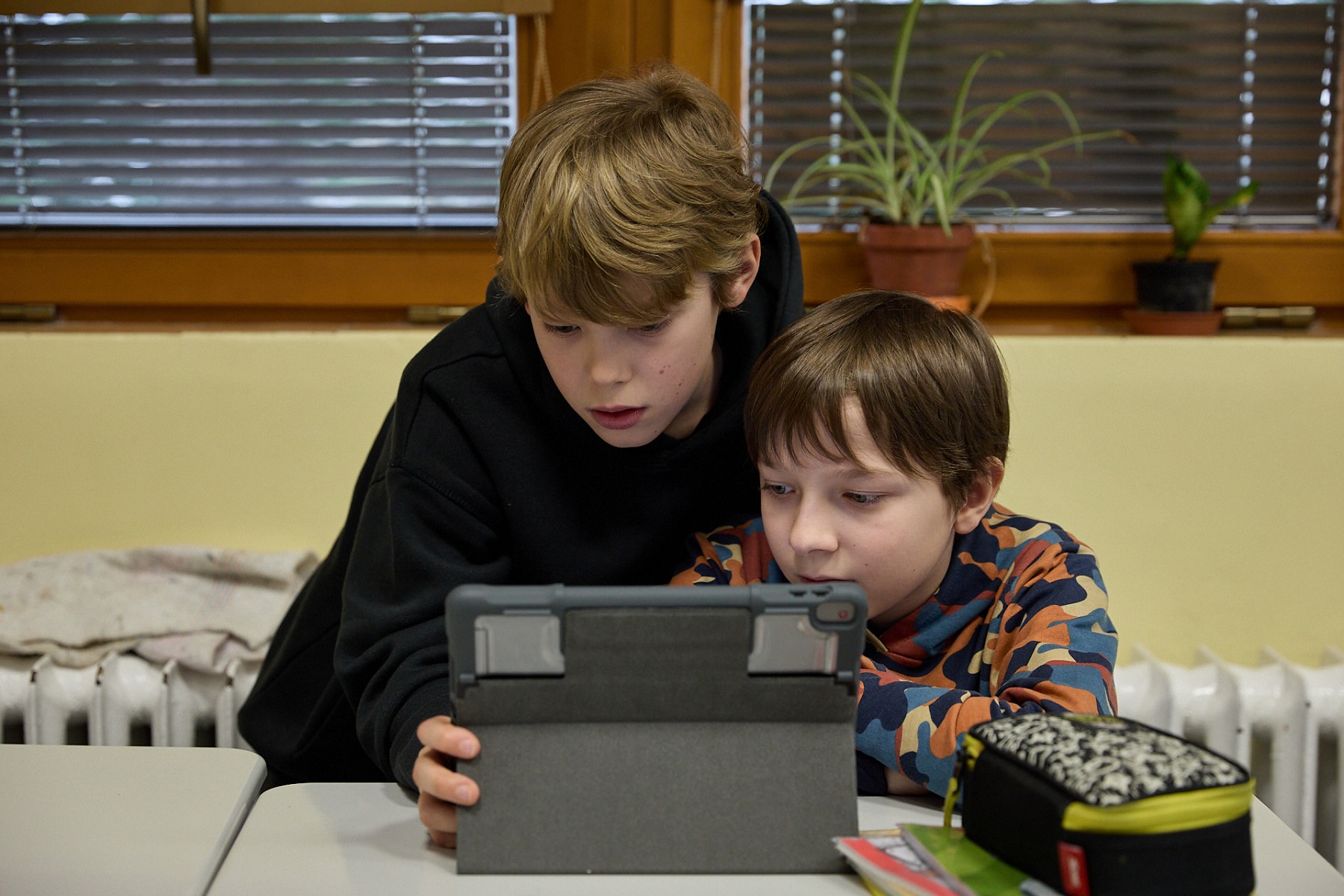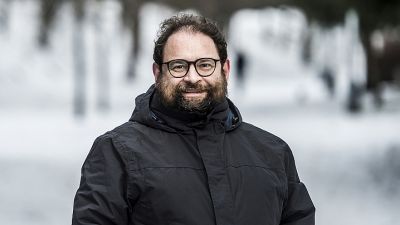We waste resources and throw away far too much food unnecessarily. The Smart Food educational project, which aims to improve pupils' knowledge about food and waste, is currently being tested at five primary schools in Prague.The project was developed in cooperation between the Faculty of Education at Charles University, the Faculty of Business and Economics at Mendel University in Brno and the City of Prague. From September onwards, interactive teaching materials used should be available to all schools.
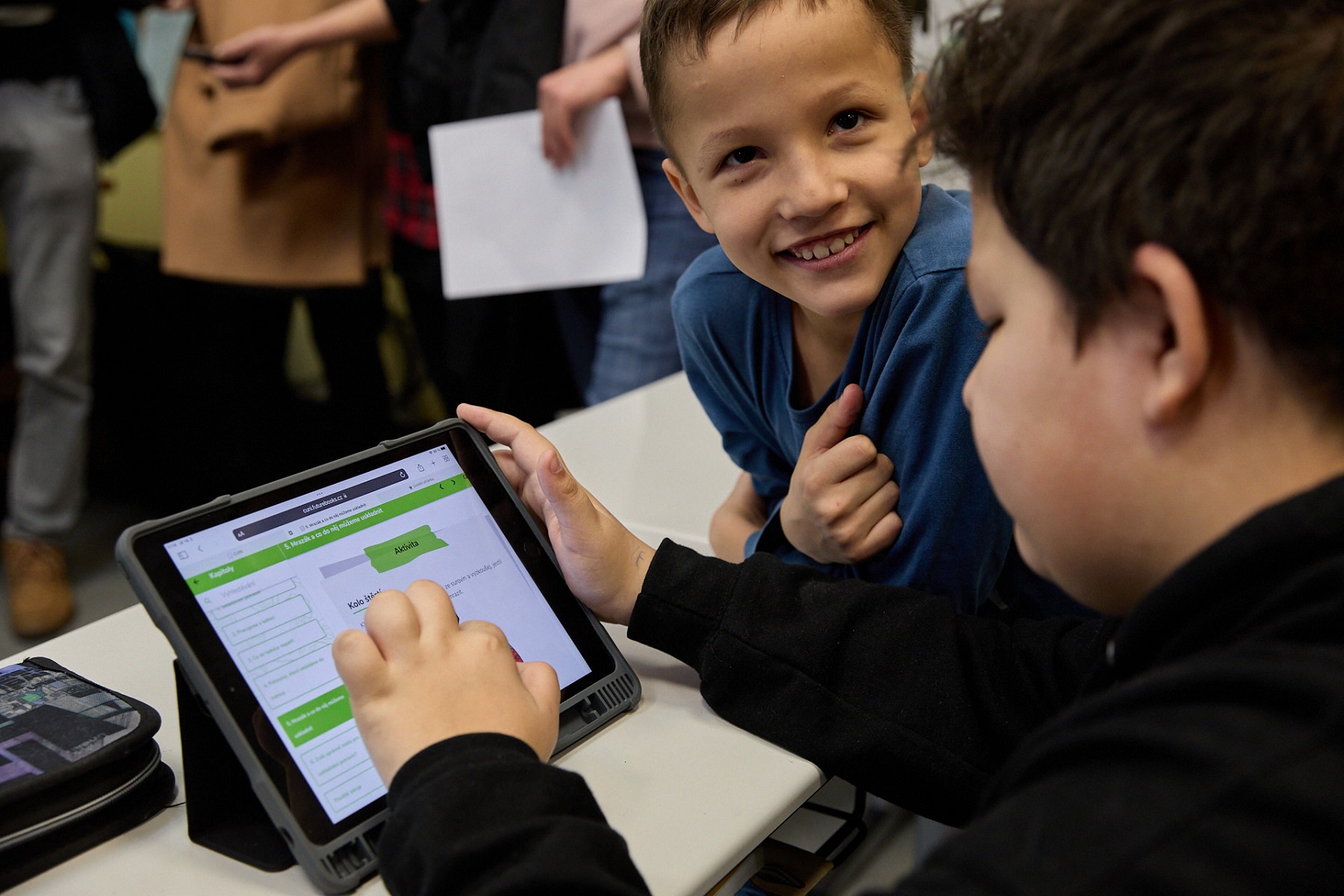
A Smart Food demonstration at one of the Prague schools where children learn how to buy or store food properly.
The Smart Food educational materials came out of extensive research by Mendel University in Brno, which spent three years tracking just how much food finds its way into Brno's municipal waste. “We focused on the main causes of food waste in households, as they appear to be the most problematic link in the whole chain. We organised a total of 42 lectures at primary schools, to which the children responded very well; they managed to further interest their parents about the issue and were involved with them in various extracurricular activities,” says Lucie Veselá, co-author of the Smart Food project, who works at Mendel University. The campaign has already succeeded in reducing municipal waste in the Czech Republic by five percent in its first year, paving the way for cooperation with the Faculty of Education at Charles University.
Interactive educational media for children
“Lucie was looking for an alternative way to distribute this information to pupils and families. At the Faculty of Education of Charles University, we have been developing a publishing system called FutureBooks for five years now, and its main goal is to create and offer interactive educational media that activate pupils with its elements. Our comprehensive tool was a perfect fit for Smart Food,” says CU’s Igor Červený - long involved in distance and e-learning issues and related methodology at the Faculty of Education of Charles University.
The Smart Food project was introduced and tested at five selected primary schools in Prague in February this year. In practice, the ongoing project consists of eight interactive teaching sets, e-textbooks, in which teachers and pupils explore the entire food chain system in detail. They might learn why food is wasted in the first place, how countries differ from each other, how difficult it is to grow a certain crop, how much effort it takes to produce and other details.
Tomatoes don't belong in the fridge
The e-books include practical advice on how to buy food items, where to store them and how to use them without waste. “I didn't know, for example, that tomatoes and potatoes should not be kept in the fridge. As soon as I get home, I'll tell my mum,” says Luboš Míka, a fifth-grader from the Solidarita Primary School in Prague 10, marvelled after a model lesson prepared by Lucie Veselá for his teacher and classmates.
The topic was food storage. The children used tablets and performed various tasks - for example, rearranging food in the fridge into the correct compartments.
“When we started to prepare this project, we knew it had to be a coherent, comprehensive topic. Therefore, the content was prepared by people from Mendel University who have been working in this field for a long time. The Faculty of Education of Charles University provided didactics and methodology and the subsequent reworking into interactive educational media,” explains Igor Červený. He says Smart Food proved effective in drawing interest and prompting pupils into action.
How to use up leftovers effectively
The teaching materials thus contain dozens of prompts and even funny videos to facilitate interpretation. Children can learn how to cook efficiently so that no part of the food goes to waste - apple peels or cucumber peels can be added to drinks, carrot stalks can be chopped up for soup stock... All these tips can be applied at home. "The aim is not only to teach and to provide information, but also to change the attitudes and approaches. That's why we are focusing on third to fifth graders who have not yet established their food habits and can more easily instil new principles," says Lucie Veselá.
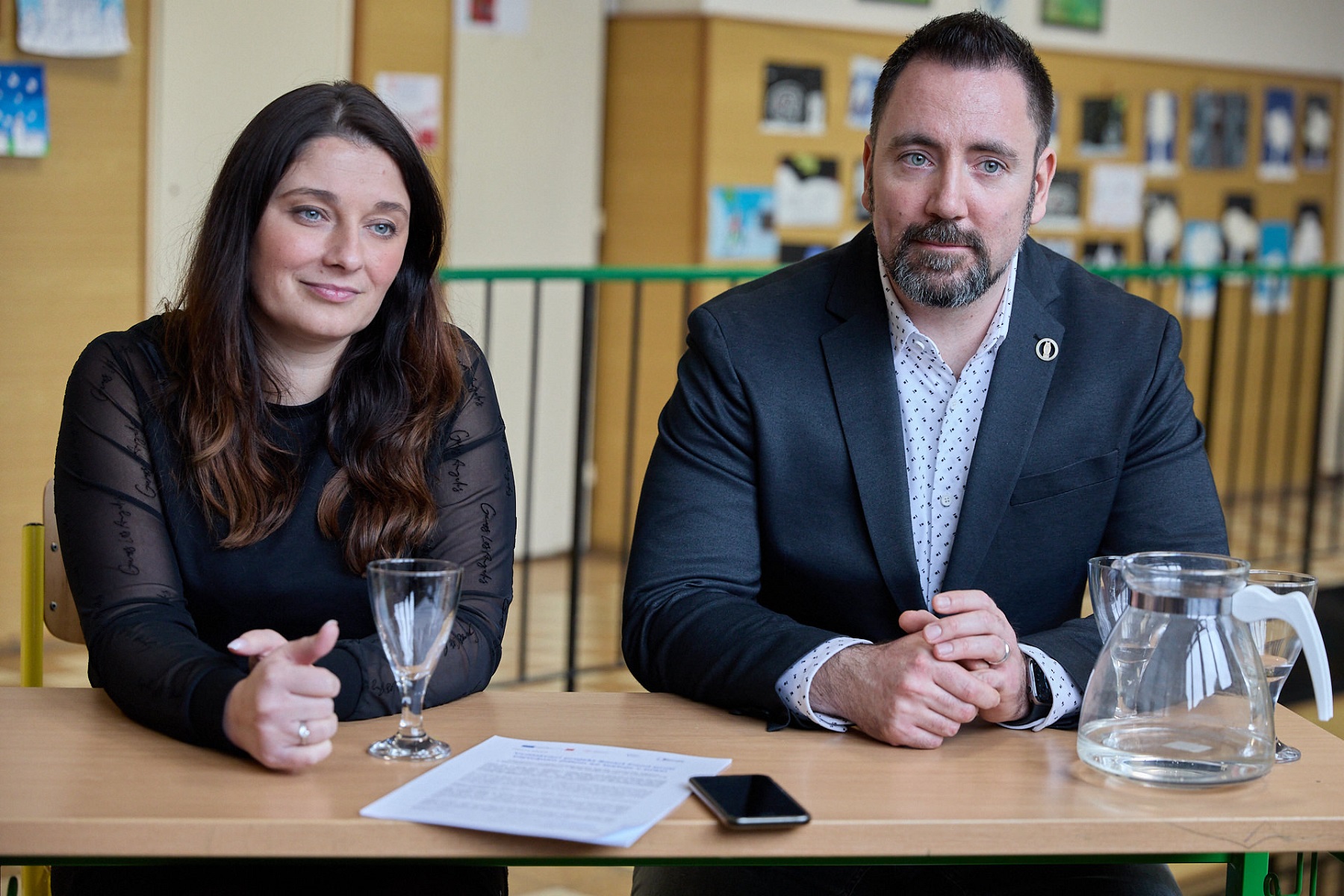
Third and fifth graders are open to new principles when it comes food to limitingwaste, say project founders Lucie Veselá and Igor Červený.
According to Červený, the great benefit of these teaching materials is their technical simplicity, which will be appreciated especially by teachers. They do not need the help of the school IT department to get them up and running. Children can connect to the system from home, which is a necessary condition for discussing the whole topic.
Not just at school but also at home
“Each of the eight e-books is designed as a single lesson, but not everything can be covered in class. That's why there are also activities for home,” Veselá explains. During the current several-month pilot programme or testing period, pupils and teachers from participating schools will take part in tests to evaluate the effectiveness of the project. The evaluation will end in June and over the summer holidays the researchers will have time and space for tweaks or changes to the system if necessary, so that the project will be available in September for all interested schools in the Czech Republic.
“But this is not the end of our mission. Since this is a unique project even within the European Union, we would like to also tailor the project for other EU countries or other countries after all the results have been verified,” says Igor Červený, outlining the possible future of the Smart Food project.


